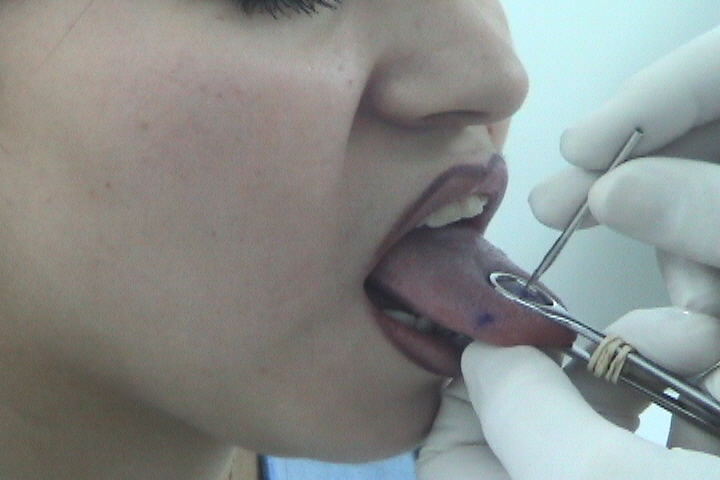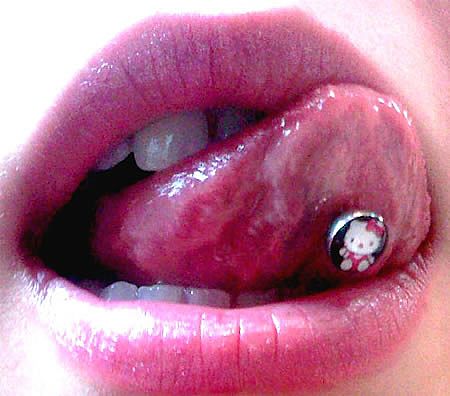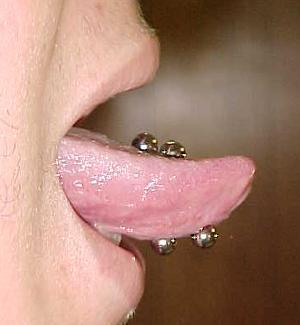Among the young adults of today tongue and lip piercing has become quite a latest trend. In fact tongue piercing has become readily easily available to everyone since these piercings are not being governed by any regulations. Despite of looking appealing, piercing the tongue makes it convenient for microorganisms to enter into the bloodstream since there are excessive blood vessels in the oral cavity. For people who are allergic to metals or suffer from heart diseases, a tongue piercing can even prove to be dangerous. Tongue piercing is one of the types of the oral piercings.
When it comes to getting the tongue pierced, there are many risks and adverse effects involved. Firstly we will be simply focusing on the process involved in getting the tongue pierced.
Tongue Piercing Procedure
Firstly a marker is used to mark the spot on the tongue where the piercing will be placed. To prevent the tongue from moving it is held by some sort of a clamp. This prevents the needle from hitting a blood vessel or causing damage to a nerve by going through the wrong part. Usually a thick needle is then stuck into the tongue without the use of any anesthetic. The reason that no anesthetic is used is because the piercers are not licensed medical professionals. A long barbell that is about 18 millimeters long is then inserted into the hole that is made in the tongue. Using a short barbell is avoided since it can get trapped inside the tongue if its swells around it. The initial 18 mm barbell is usually replaced with a shorter one if the tongue piercing does not get infected.
Tongue Piercing Risks
While many people today find it attractive to get their tongue pierced, there are several health related risks involved in getting the tongue pierced, which include:
Infections:
While piercing the tongue, lip, or cheek may be attractive to some, there are a number of health-related risks associated with oral piercing, including:
- Damage to teeth: Coming into contact with tongue piercing can chip or crack the teeth.
- Problems with eating: The presence of tongue jewelry makes it difficult for people to eat.
- Loss of taste: Those who get their tongues pierced even end up losing taste of edibles.
- Problems with speaking: A piercing in the tongue also makes it hard for people to speak.
- Additionally, the gingival tissue can get injured, scar tissue can be formed and salivation can be increased because of the tongue piercing.
Tongue Piercing Adverse Effects
A tongue piercing can even cause life threatening adverse effects such as:
- Infections: The risk of infections is increased because of the bacteria present in the mouth and those that can be additionally introduced.
- Transmission of diseases: The transmission of organisms such as Hepatitis B, C, the herpes simplex virus, HIV, poses a potential life threatening risk factor when getting the tongue pierced.
- Airway obstruction: Severe swelling of the tongue can block the airway and make it difficult to breathe.
Thus overall tongue piercing is quite risky and people should therefore evaluate the risks before going forth with it.



Leave a Reply